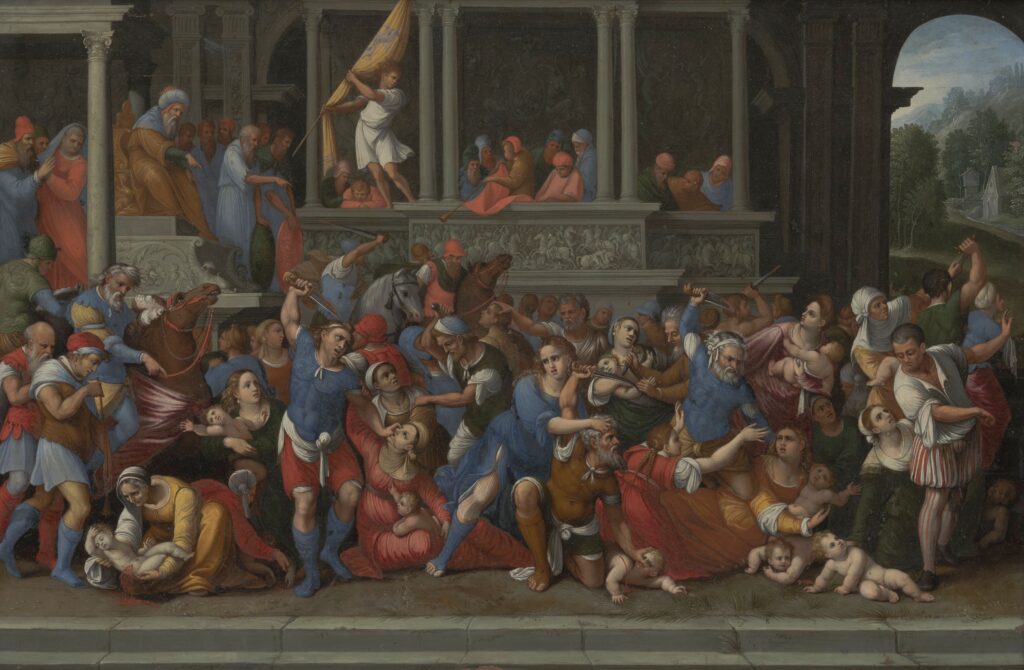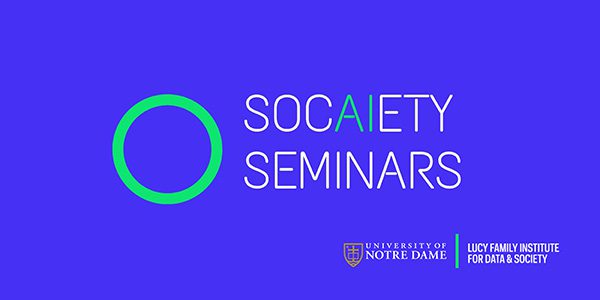The Sinfulness of One
Friday, March 22, 2024 12:00 pm EST
Gina Costa, Communications Program Director at the Raclin Murphy Museum of Art, leads us through a meditation on Massacre of the Innocents attributed to Valerio Marucelli.
Commissioned by the Medici court, the work is a copy of a painting now in the Uffizi in Florence. The technique of oil painting on copper originated in Italy, where it became common in the 1560s and ’70s, and enjoyed great popularity by 1600. The smooth metal surface of these images enables a meticulous style with a heightened sense of color and luster that rewards close, careful looking.
This story from the Gospel of Matthew depicts King Herod who, after hearing from the Magi of a newborn King, directs his soldiers to kill all male babies born near Bethlehem. The artist shows a complicated mass of bodies in violent action, accompanied by the restrained lamentations of mothers trying unsuccessfully to protect their sons. The terror and the mayhem unfold throughout the piece.
The emotional turmoil caused by such senseless suffering is challenging to comprehend—it is the unnecessary loss of innocent lives due to the sinfulness of one individual. Herod’s insatiable greed, arrogance, paranoia, and bloodlust had so consumed him that they overflowed and extended to everyone under his authority to horrifying results.
Often, we tend to perceive our transgressions as merely personal, affecting only ourselves. However, the unusual circumstances of the tragic massacre of the holy innocents starkly reveal that the internal struggle between our vices and virtues holds significant consequences for others as well. The person we allow ourselves to become over time extends our influence, for better or for worse, to those around us.
May we earnestly seek the Lord, surrendering any pride, arrogance, hatred, and jealousy to Jesus so that we may be consumed by and overflow with God’s unfailing love.
This Lent, ThinkND invites you to join FaithND and the Raclin Murphy Museum of Art for a journey of Lenten discovery through some of the most significant liturgical paintings in the Raclin Murphy collection, challenging you to contemplate prayer, fasting, sinfulness, mercy, grace, and God’s infinite love from the perspectives of the artist’s gaze. To subscribe to the FaithND Daily Gospel Reflection visit faith.nd.edu/signup.

For closer viewing of this work through the digital collections of the Raclin Murphy Museum of Art, please click here.


